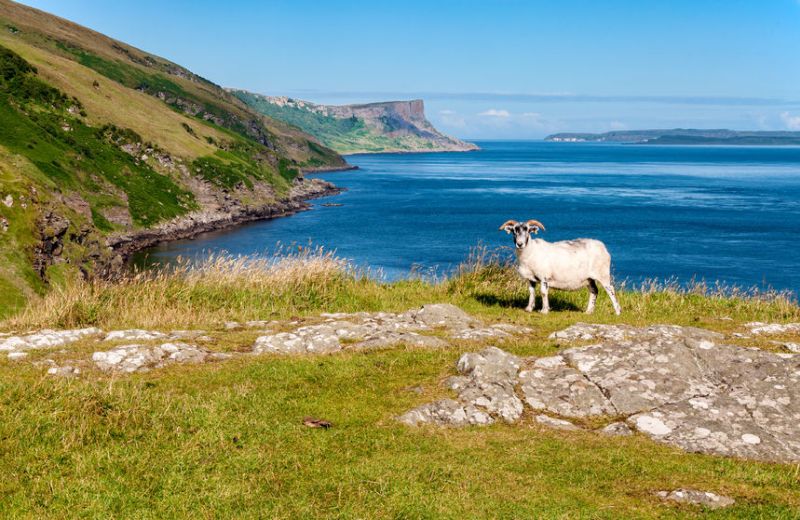
A 'no deal' Brexit would be "disastrous" for the farming industry in Northern Ireland, particular for sheep farmers, according to the Ulster Farmers' Union.
The latest set of UK Government’s Brexit ‘no deal’ technical papers further reinforce the importance of the UK leaving the EU with a deal in place, the union said.
The government's latest, and last, batch of technical notices on Brexit ‘no deal’ scenarios suggest that the UK would need to be approved by the EU as an exporter – a process which could take a minimum of six months.
In order to export to the EU, Export Health Certificates would be required from the end of March 2019, with consignments needing to travel through a Border Inspection Post within the EU.
The EU would require the UK to be a listed third country, but Defra acknowledged it "cannot be certain" of the EU response to such a request or its timing.
It is expected the process could take at least six months. Without listed status no exports to the EU could take place.
The total value of agri-food exports to the EU in 2017 was £13bn, of which £3.15 billion was animals and animal products.
'Completely unacceptable'
Ulster Farmers' Union (UFU) president, Ivor Ferguson said the notices suggests the Northern Ireland farming industry would face a cliff-edge scenario if the UK leaves the EU with no deal.
"This is completely unacceptable and would be disastrous for farming in Northern Ireland, particularly for our sheep industry, and for the economy. The papers confirm what we already knew: a ‘no deal’ Brexit is bad for farming," Mr Ferguson said.
The UFU said the papers underline the importance of securing a deal that delivers free and frictionless trade with the EU.
“We understand that the government must prepare for all eventualities but it is critical that they do everything they can to ensure the no deal scenario is avoided. If we leave the EU without a deal the UK becomes a ‘third country’ trading partner.
“This means tariffs, checks, paperwork, and delays. Ultimately, a ‘no deal’ poses a serious threat to livelihoods and businesses,” said the UFU president.
Border
The border between Northern Ireland and the Republic of Ireland remains a key issue. The UFU stressed that any solution must ensure minimal disruptions to trade north and south. While at the same time, not hamper trade east/west.
Mr Ferguson added: “GB is our biggest market and the Republic of Ireland has always been one of our main trading partners. Trade between Northern Ireland and the ROI existed long before either country joined the EEC. It is essential that it is maintained.”
The UFU said it believes that it is possible for the UK and EU to reach a deal, however farmers must be prepared.
“The worst possible outcome for the farming industry is a no deal. We continue to work with our farming union counterparts in GB to urge both sides to ensure an exit deal is agreed,” Mr Ferguson said.
